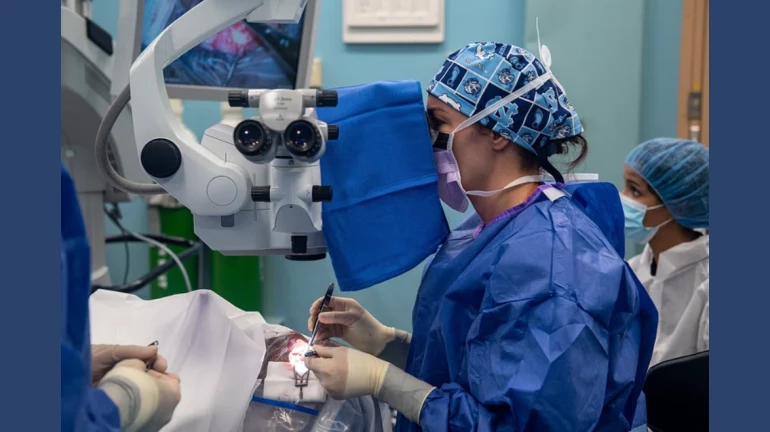
Cataract surgery is a common and highly effective procedure for restoring vision impaired by cataracts, a clouding of the eye's natural lens. While advancements in technology have made the surgery safer and more efficient than ever before, it's important for patients to be well-informed and prepared before undergoing this procedure. Asking the right questions can help ensure that you have a clear understanding of the process and feel confident in your decision.
Dr. Mubashir Mohammed Parkar, Dr Agarwals Eye Hospital, Kalyan, Consultant Ophthalmologist has enlightened with some essential questions to discuss with your doctor before scheduling cataract surgery:
Understanding the nature of cataracts and how they impact your vision is the first step in making informed decisions about treatment. Cataracts occur because the crystalline lens in our eye loses its transparency with age. As a result of this loss of transparency, the lens is unable to transmit light onto the retina, causing blurring of vision. Your doctor can provide detailed information about the development of cataracts and how they may be affecting your ability to see clearly.
While cataract surgery is a highly successful procedure, it may not be necessary or appropriate for everyone. Your doctor can assess your individual case and discuss whether surgery is the most suitable course of action based on factors such as the severity of your cataracts and your overall eye health.
Like any surgical procedure, cataract surgery carries certain risks, such as infection, bleeding, inflammation, etc. However, the risk of these complications is extremely rare. Your doctor can explain these risks in detail and discuss steps that can be taken to minimize them.
During cataract surgery, the natural lens of the eye is replaced with an artificial lens called an intraocular lens (IOL). There are different types of IOLs available, each with its own benefits and considerations. The most commonly implanted IOLs are monofocal IOLs, which correct vision at one distance. For complete independence from glasses, options include trifocal or extended depth-of-focus IOLs. In the presence of corneal astigmatism, a toric IOL may present the best vision. Your doctor can help you determine which type of IOL is most appropriate for your needs and lifestyle.
Understanding what to expect after surgery can help you prepare for a smooth recovery. Your doctor can provide information about post-operative care, including any restrictions on activities, medications, and follow-up appointments. It's generally advised for the patient to avoid a head bath or splashing water on the face for a period of one-week post-surgery.
In some cases, alternative treatments or procedures may be available for managing cataracts or improving vision. Your doctor can discuss these options with you and help you weigh the benefits and risks against cataract surgery.
Cataract surgery is known for its high success rate and ability to significantly improve vision. Your doctor can provide statistics on success rates and discuss the expected outcomes based on your individual circumstances.





